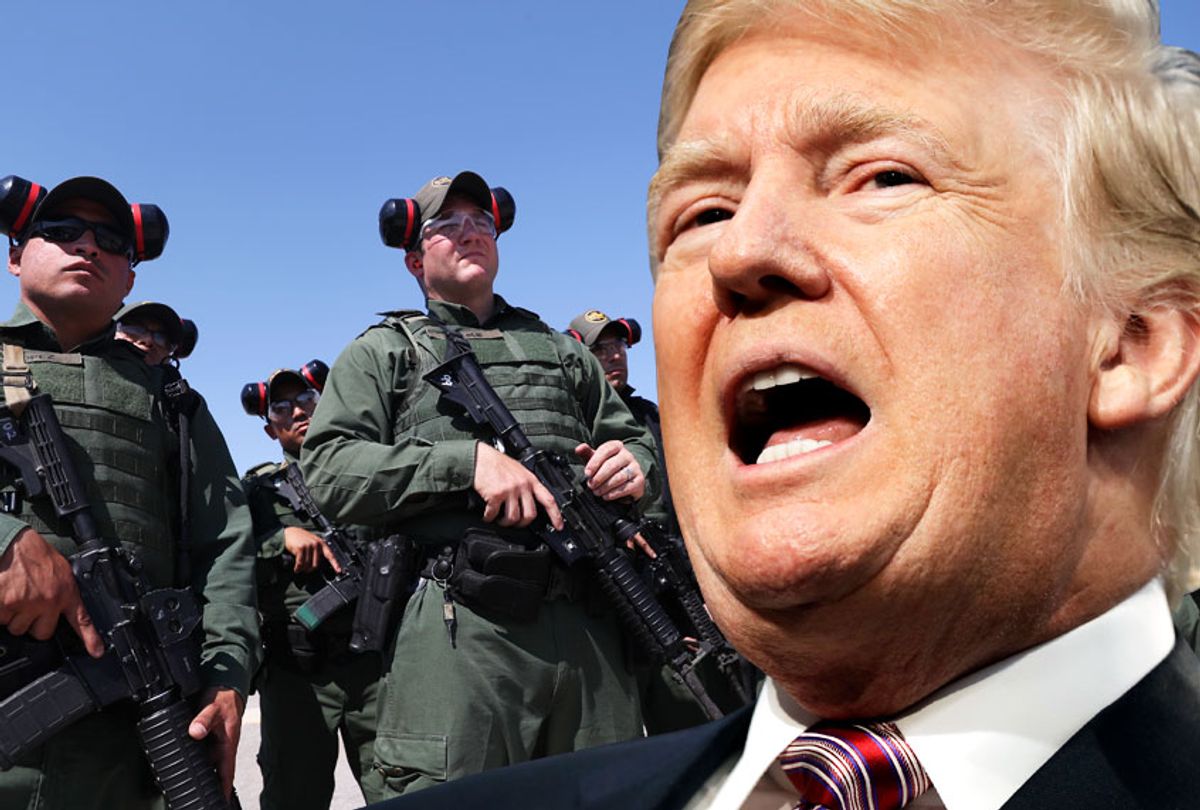Sheriff Richard Wiles of El Paso County had a very Trump-ian response to the president's attempt at citing his jurisdiction as proof of the efficacy of walls: "Sad."
During his State of the Union message, Trump made the following remarks about El Paso in order to justify his proposed US-Mexico border wall:
"The border city of El Paso, Texas, used to have extremely high rates of violent crime — one of the highest in the country, and [was] considered one of our nation’s most dangerous cities. Now, with a powerful barrier in place, El Paso is one of our safest cities," Trump told the nation.
After the State of the Union address was delivered, MSNBC anchor Brian Williams spoke with Cal Perry, who relayed the reaction of El Paso's sheriff to Trump's assertion.
"So Donald Trump says that El Paso has become a safe city after the wall," Perry told Williams. "Here's what we got from Sheriff Richard Wiles directly after the speech: 'It is sad to hear President Trump state falsehoods about El Paso, Texas in an attempt to justify the building of a 2,000 mile wall. The facts are clear: While it is true that El Paso is one of the safest cities in the nation, it has never been considered one of the nation's most dangerous cities, and El Paso was a safe city long before a wall was built.' He finishes by saying, 'President Trump continues to give a false narrative about what a great city that truly represents what this great nation is all about.'"
Perry added, "What you hear there from the sheriff of El Paso County has been echoed by sheriffs all across Texas. We met with the sheriff of Hidalgo County last week. He said one of the president's biggest problems is, when he visits down here, he is not meeting with sheriffs in the counties — those 31 counties in southern Texas that border Mexico — the sheriff said when he came down here for his meeting in McAllen, he did not speak with any of them."
CNN also fact-checked Trump's erroneous claim about El Paso during the State of the Union:
The President's statement, which has been repeated by public officials and the White House over the course of the last year, makes an inaccurate connection.
According to an analysis of FBI crimes data and city law enforcement data analyzed by the El Paso Times, violent crime in El Paso peaked in 1993. Border fence construction didn't begin until 2008, and was completed in 2009. But violent crime fell long before the wall was built in El Paso, with violent crime falling 34% between 1993 and 2006 in the city.
And according to the El Paso Times, from 2006 to 2011, violent crime in El Paso actually increased by 17 percent.
“We should be at the center of deciding the future because of our generosity, good-will, & kindness. El Paso has set an example for our country & we have done it in the way that we opened up our arms and treated people with dignity.” -@RepEscobar on Trump’s #ZeroTolerance policy pic.twitter.com/sJo8bMDNBM
— Hispanic Caucus (@HispanicCaucus) February 6, 2019
Hours after slamming the city, Trump's campaign announced on Wednesday that he will have a rally in El Paso, the home of potential Democraic challenger Beto O'Rourke, on Feb. 11.



Shares